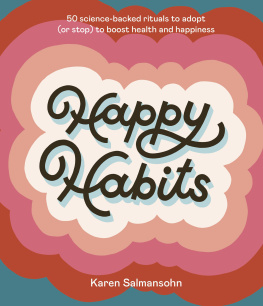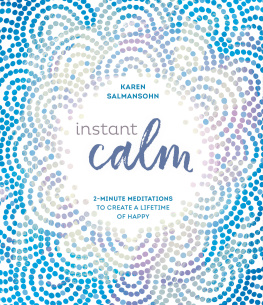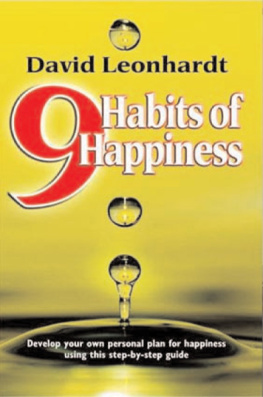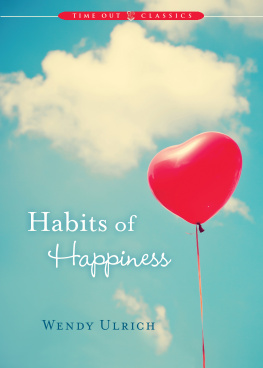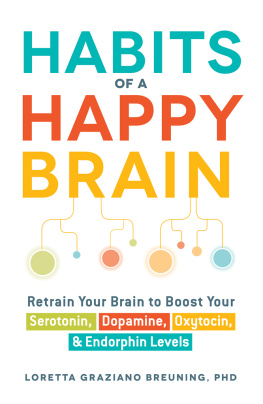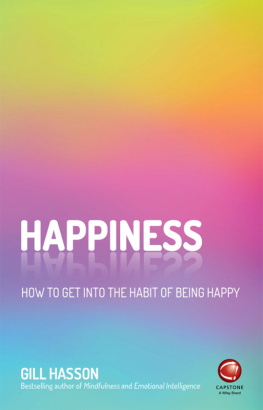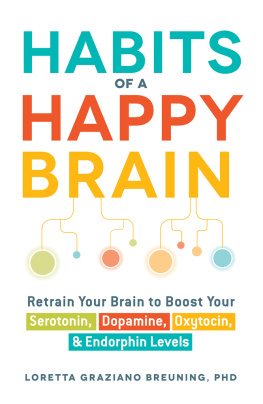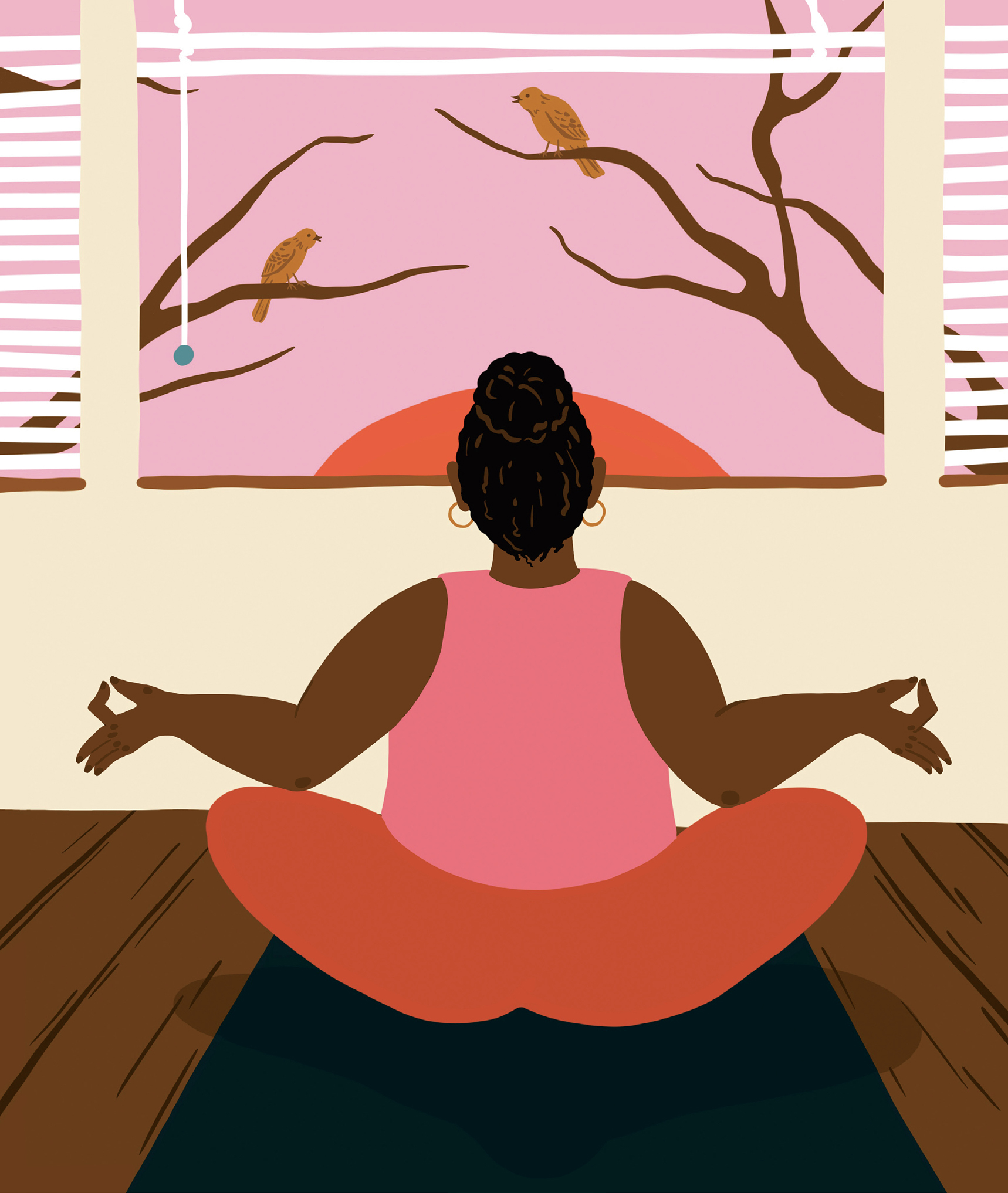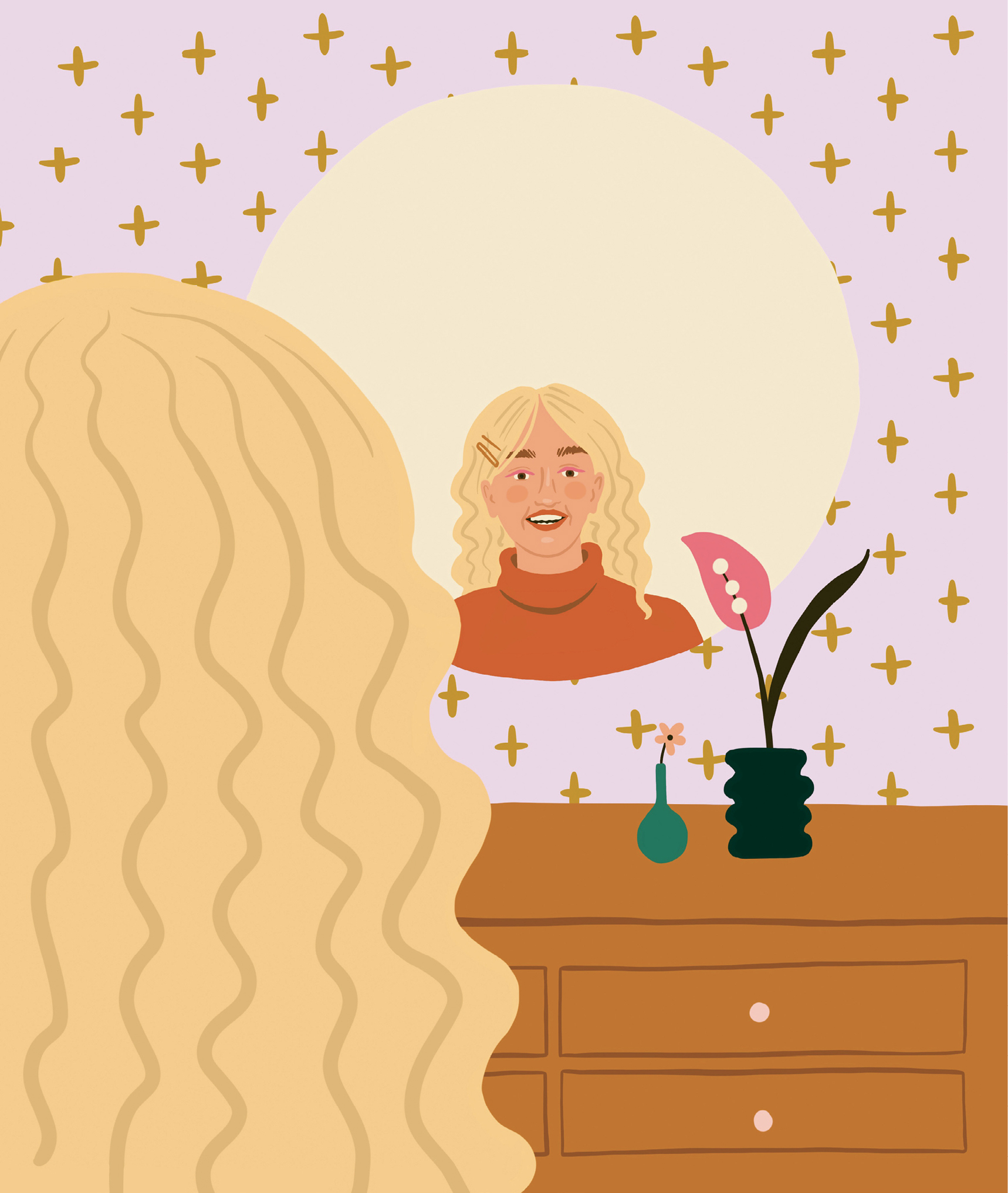Id love to start by thanking my Muse Team, Ari Salmansohn and Howard Schwartz, who make my heart smile every day.
Next up, Id love to thank my brilliant editor, Shaida Boroumand, who nipped, tucked and polished everything beautifullyall while keeping my voice and message both strong and me.
Thentheres my incredibly talented designer, Lisa Bieser, who is a genius at layouts, fonts, colors, style!
And of coursemany thanks to my awesome agent entourage, Celeste Fine and Anna Petkovich.
Lastly, a big thank you to coffeebecause without you, none of this would have been possible!
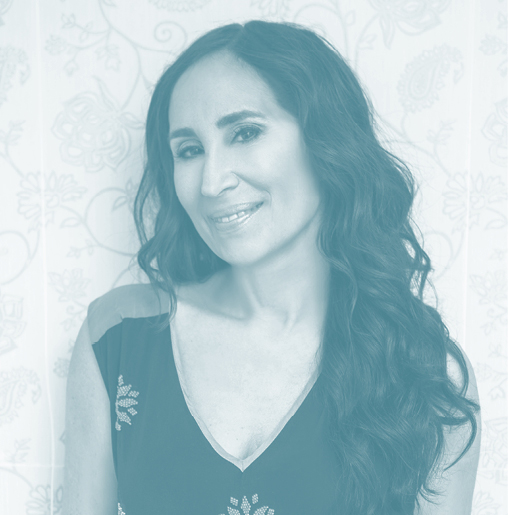
KAREN SALMANSOHN is a happiness and wellness research geek and the author of numerous best-selling life-improvement books (with more than one million copies sold), including Instant Calm: 2-Minute Meditations to Create a Lifetime of Happy, Life Is Long! 50+ Ways to Help You Live a Little Bit Closer to Forever, and Think Happy: Instant Peptalks to Boost Positivity. She has studied to be a yoga and meditation teacher, and also founded the popular NotSalmon video courses, offering video training on happiness, love and wellness. Shes a regular columnist for Oprah.com, Psychology Today, CNN, MSN, Yahoo, AOL, Match.com, and the Huffington Post; has appeared on the Today Show, The View, CNN, CNBC, and Real Time with Bill Maher; and been featured in numerous publications including the New York Times, Business Week, the Chicago Tribune, the Los Angeles Times, the Philadelphia Inquirer, Time, Marie Claire, Fast Company, InStyle, Self, ELLE, and the New Yorker. Karen and her family live in New York. Feel free to say a friendly howdy to her at www.notsalmon.com.
your essential morning meditation ritual
Start your mornings with meditation. Why?
Basically, a relaxed brain is a super-willpower brain.
Studies show that stress makes you more likely to do bad habits.
UCLA neuroscientist Alex Korb explains: Stress weakens your prefrontal cortexwhich is the self-control part of your brain.
Meditation is an important Keystone Habit because it helps you reduce stress and increase your ability to choose positive habits.
Meditation gives you an impressive trifecta of benefits:
And it doesnt take long to unlock those benefits. In a study in the Journal of Positive Psychology, participants reported fewer negative emotions and more positive emotions after just fifteen minutes of meditation.
Make It a Habit
Start your day with (at least) fifteen minutes of meditation or mindful breathing.
your essential evening gratitude practice
Count your blessings at bedtimeinstead of simply counting sheep. Why?
A study done by Dr. Nancy Digdon reported that writing in a gratitude journal for fifteen minutes before bedtime helped people to worry less and sleep longer and more restfully.
Plus, Dr. Emma Seppl from Stanford University reported that gratitude increases optimism, altruism, social connection, and health.
Sounds good, eh? However, Ive listed gratitude as a Keystone Habit not simply because its so powerful at boosting your mood, but because its reported to have a positive ripple effectempowering people to do a range of Happy Habits.
Make It a Habit
End your day with gratitude. Dedicate fifteen minutes (at least) before bedtime to writing in a gratitude journal. Or silently list five things youre grateful about and think about them as you drift to sleep.
reframe the negative
Just because a habit is good for you doesnt make it easy to do. Reframe challenging habits so theyre positive, easier, and fun.
Try these four Reframing Tools!
As If Reframe: Get motivated to adopt a challenging habit by imagining the results as if youve already achieved them.
Revised Time Reframe: Convince yourself of an urgency by setting a deadline to complete a task or a short time limit to make challenges feel manageable.
New Perspective Reframe: Imagine someone awesome convincing you to do the habit. Seeing it from another perspective may help you find ways to accomplish your goals.
Humor Reframe: Give the habit a funny name! If you can smile about it, how hard can it be?
Make It a Habit
Next time you catch yourself putting off a good-for-you habit that you dread, try applying some of these reframing techniques instead.
talk to yourself out loud
You might think its a bit weird to talk to yourself out loud. But according to a study in the European Journal of Social Psychology, if you talk to yourself using the pronoun you instead of I, you can help stop yourself from feeling frazzled or anxious. Plus, this second-person self-talk builds self-esteem and improves productivity.
Another study by the University of Michigan reported that people who feared giving a speech wound up calming themselves down far moreand performing much betterwhen they spoke to themselves using you rather than I.
Make It a Habit
Pump up your outlook for the day by giving yourself a morning pep talk. Tell yourself: You are a badass rock star! You can handle anything that comes your way! Plus, prepare for that big presentation (or interview or any stressful situation) by telling yourself things like: Youll do great! and You got this!
chin up, buttercup
Keep your chin upliterally.
A 2015 study in the Journal of Behavior Therapy and Experimental Psychiatry reported that standing up tall makes you feel a little happier and more confident. But if you slouch or hang your shoulders, you will feel more down.
In the study, folks who walked around hunched over thought more negative wordscompared to those who stood up straighter.
Plus, slumping in your chair also subconsciously influences you to think more negativelyaccording to a 2014 study in the Clinical Psychology and Psychotherapy journal.
Make It a Habit
Better posture makes you feel better. So, each time you sit down, remember to keep your body straightnot slumped. And whenever you stand up, consider this action a cue to push your shoulders back!

